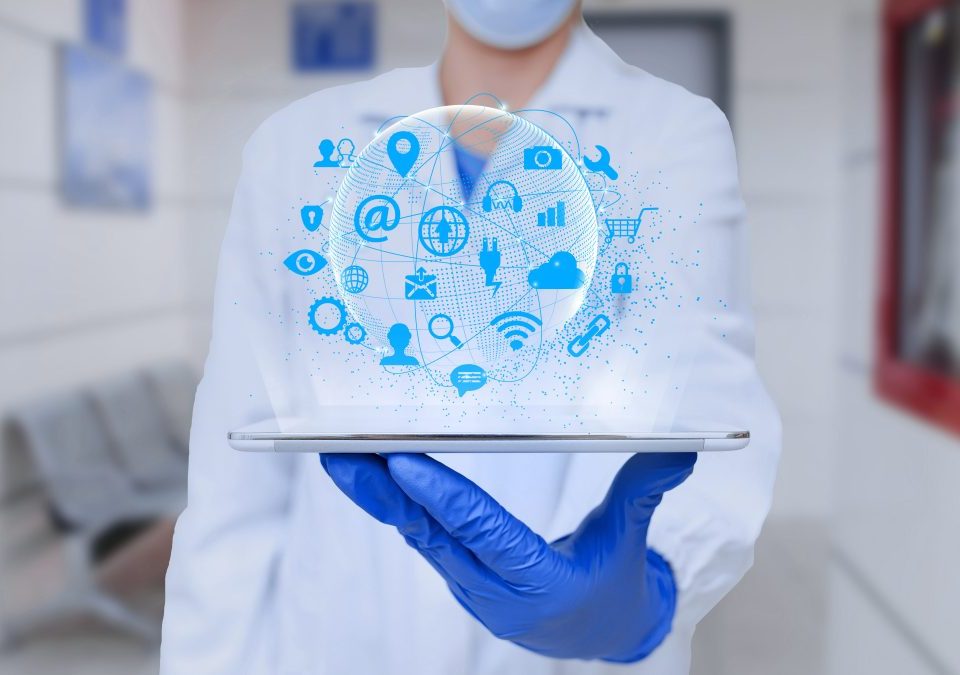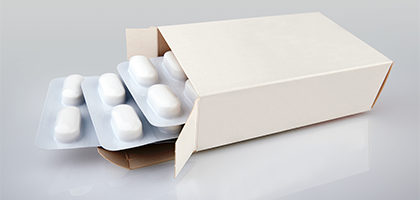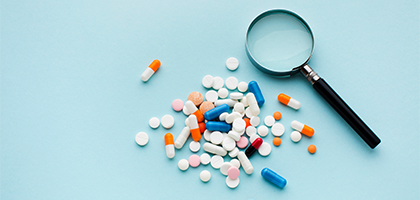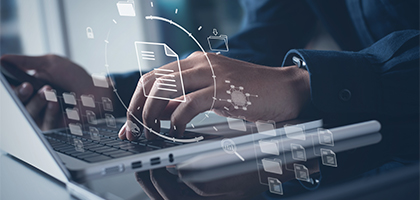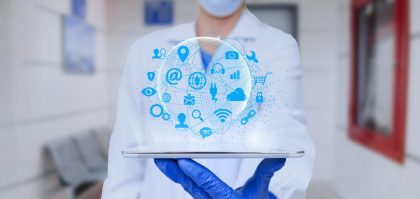
Insights
Benefits of Internet of Things
(IoT) in Healthcare
The Internet of Things (IoT) is a network of physical objects which are embedded with sensors, software, and network connectivity, enabling the collection and sharing of data over the internet. In simple terms, these ‘‘things’’ are connected to the internet, so they can send and receive information. For example, only computers and phones use the internet normally. With the Internet of Things, objects like lights, watches, and refrigerators can use the internet, too.
The Internet of Things connects physical objects to the internet to enable intelligent actions across different sectors, including healthcare. This combination of technologies helps monitor patients in real time, improve care, and save time. In short, the Internet of Things makes healthcare faster, safer, and more efficient. In this blog, we focus on the key benefits of Internet of Things in healthcare.
What is Internet of Things in Healthcare?
Internet of Things in healthcare is the usage of internet-connected devices to collect and share patient data automatically. This technological integration facilitates real-time health monitoring and holds significant potential for improving healthcare delivery and patient outcomes.
Healthcare providers use Internet of Things devices to enable seamless communication between different systems. These devices contribute to healthcare automation and clinical decision-making.
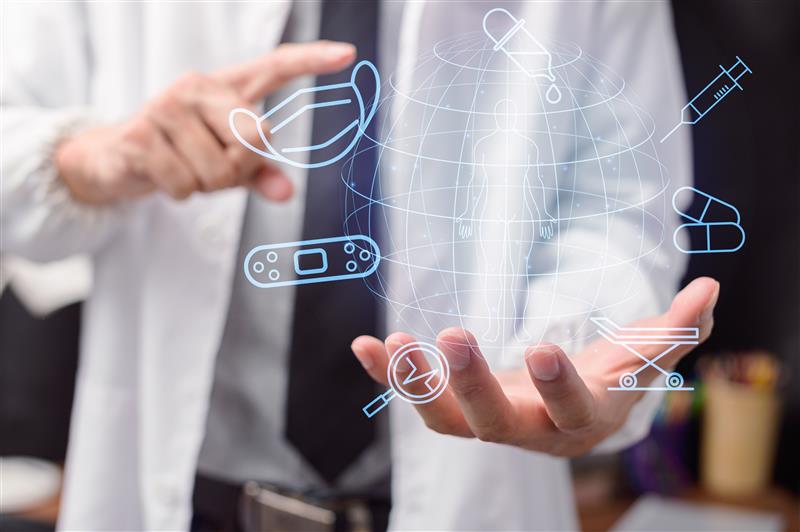
Key Benefits of IoT in Healthcare
Internet of Things devices offer many benefits in healthcare. Remote patient monitoring, enhanced operational efficiency, low healthcare costs, and patient engagement are among the primary advantages.
Real-Time Data Access and Improved Patient Monitoring
Internet of Things devices like wearable sensors and smart beds continuously collect patient data such as heart rate, blood pressure, sleep quality, body temperature, and so on. The data is transmitted over the internet to users along with healthcare professionals for enabling continuous monitoring, even when the patient is at home.
These devices can also send automatic alerts if a patient’s health status gets worse. These alerts support early detection and timely intervention. This prevents emergencies, reduces complications, and ultimately saves lives.
Increased Operational Efficiency in Healthcare Facilities
From hospitals to clinics, healthcare facilities can manage their daily operations and resources more efficiently with the help of Internet of Things devices. For instance, these smart devices can track medical equipment like wheelchairs and infusion pumps, so staff can find the equipment quickly. Moreover, IoT-based scheduling and monitoring systems reduce delays by improving workflow management.
This benefit also saves valuable time for healthcare professionals; IoT in healthcare minimizes manual paperwork through automated data collection. Thus, physicians and nurses spend less time on administrative tasks and focus more on patient care.
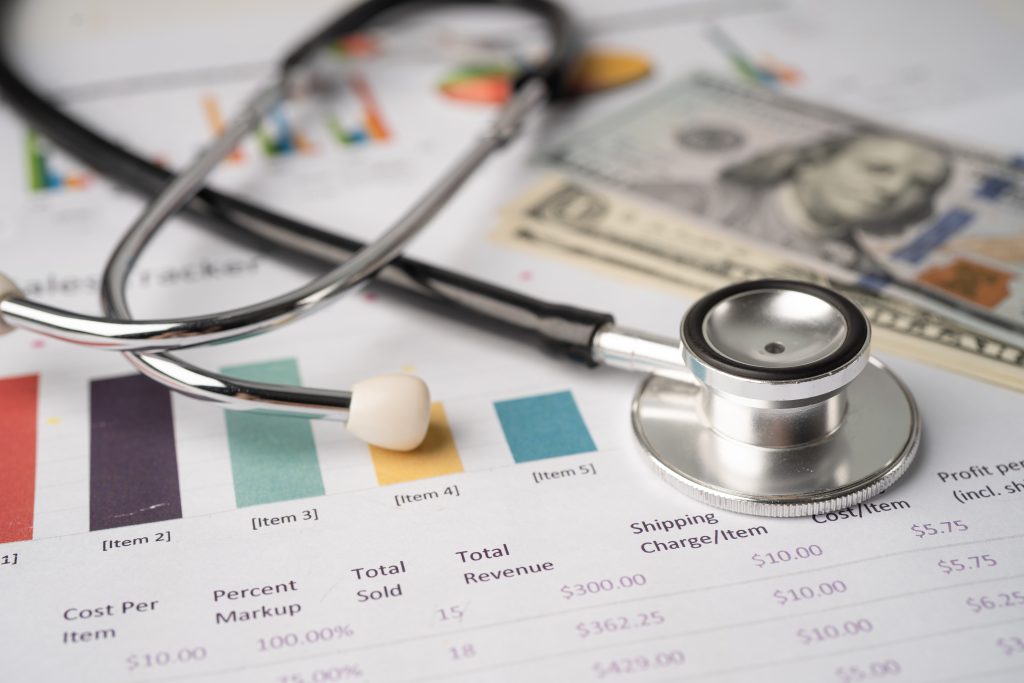
Reduced Costs
IoT for healthcare helps reduce costs for both healthcare facilities and patients. For example, IoT-based remote patient monitoring reduces the need for frequent physician visits and long hospital stays. Furthermore, IoT devices can eliminate expensive treatments by contributing to the early diagnosis of serious conditions.
These devices provide insights into resource utilization, helping minimize waste and enable more efficient resource allocation in healthcare facilities. Additionally, the devices can reduce equipment loss and unnecessary tests, so healthcare professionals can manage their time better.
Patient Empowerment
IoT in healthcare gives patients more control over their own health. IoT devices like wearables allow users to monitor their health data without visiting a healthcare facility. This continuous monitoring capability is crucial for understanding current health status and managing chronic diseases.
IoT-powered remote monitoring solutions enable individuals to receive comprehensive care from their homes, while staying connected with healthcare professionals. These solutions mainly present a proactive approach to disease diagnosis and treatment.
Consequently, IoT makes patients informed and involved in their own care, supporting healthier behaviors and improved health outcomes.
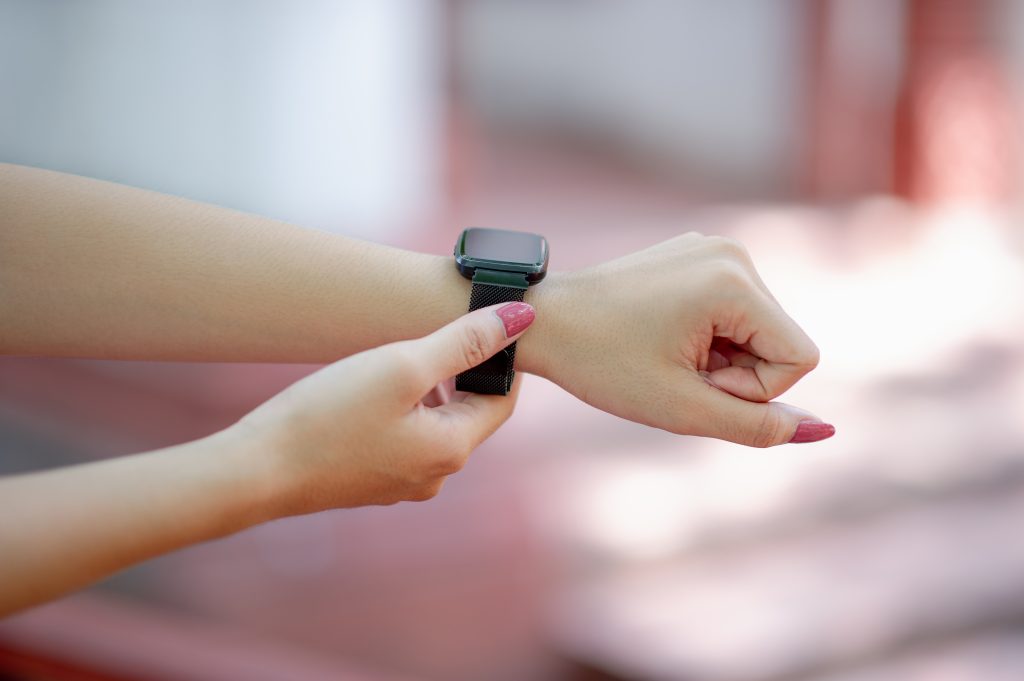
Real-World IoT Examples in Healthcare
There are many real-world IoT examples in healthcare. The following are among the common healthcare IoT examples:
- Wearable Health Technologies: These devices, including smartwatches, fitness trackers, and smart rings, continuously collect health data like physical activity and sleep patterns.
- Remote Patient Monitoring: IoT-based monitoring devices track patients’ health metrics such as heart rate and blood pressure from the comfort of their homes. These devices transmit patient data to their physicians in real time.
- Glucose Monitoring: Sensor-based glucose monitoring systems measure blood sugar levels without interruption. These systems can share the data with patients and healthcare providers.
- Ingestible Sensors: These tiny sensors, which are also known as digital pills or smart pills, are swallowed like medicines. Once ingested, they transmit physiological data from within the human body to external systems.
- Heart Rate Detector: Heart rate monitors detect and track heart rate continuously. These devices alert users and healthcare professionals when there are abnormal patterns.
- Connected Inhalers: Smart inhalers can track inhaler usage and offer reminders along with data. Users can manage asthma and other respiratory conditions more effectively via data and reminders.
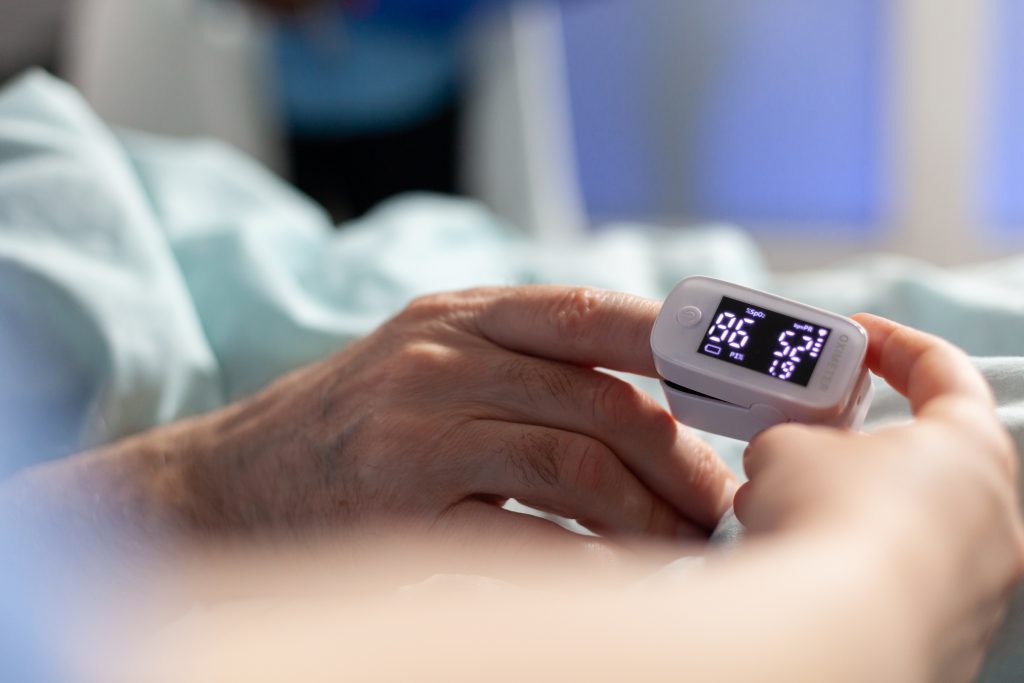
Challenges in the Implementation of IoT in Healthcare
Although healthcare IoT provides many advantages for patient care and healthcare workflows, there are some significant challenges must be addressed for better implementation:
- Data Security and Privacy: IoT devices collect personal health data, so users often have concerns about the security and privacy of their information. If sensitive patient information is not appropriately protected, it may be exposed to breaches or unauthorized access. Furthermore, unauthorized access may cause misuse of patient data. Healthcare organizations must consider strong data protection measures while utilizing IoT.
- Interoperability: Different manufacturers can develop IoT devices that use different data formats, standards, and protocols. This makes the sharing and integration of data across diverse health systems difficult. Unfortunately, lack of standardization limits the benefits of IoT.
- Costs and Infrastructure: The deployment of IoT solutions in healthcare involves substantial investment. In addition to the payment for IoT devices, sensors, and software, it requires reliable internet connectivity, cloud storage, and IT support. Also, staff training, maintenance, and updates raise the cost. Especially small hospitals and clinics, healthcare facilities may have difficulty in IoT adoption due to high costs.
- Data Overload: IoT solutions generate large amounts of data, and not all of which is useful or relevant. Without effective data management, this information overload can overwhelm healthcare stakeholders. Additionally, managing, storing, and analyzing information requires advanced analytics tools.
- Regulatory Compliance: Healthcare organizations must comply with strict laws and regulations, that can vary from country to country, for IoT operation. These laws and regulations are mainly related to patient data and medical devices. Failure to comply might result in penalties and legal actions.
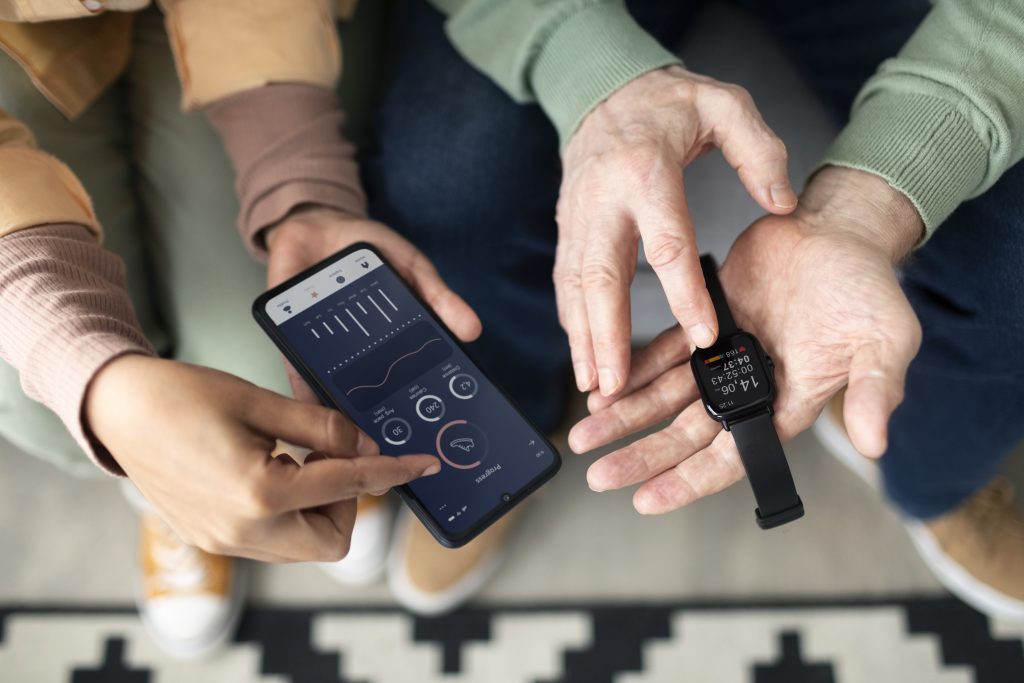
Conclusion
Internet of Things in healthcare enables real-time patient monitoring, improves operational efficiency, reduces costs, and empowers patients. Proper planning and secure implementation of IoT in the sector can address common challenges like data privacy and interoperability.
The key benefits of IoT in healthcare show the potential of emerging technologies in improving health outcomes. Digital health technologies like our innovative solutions support better patient care and more efficient healthcare operations. To explore our systems, you can click here.
Let’s shape the future of healthcare together through IoT technologies!
